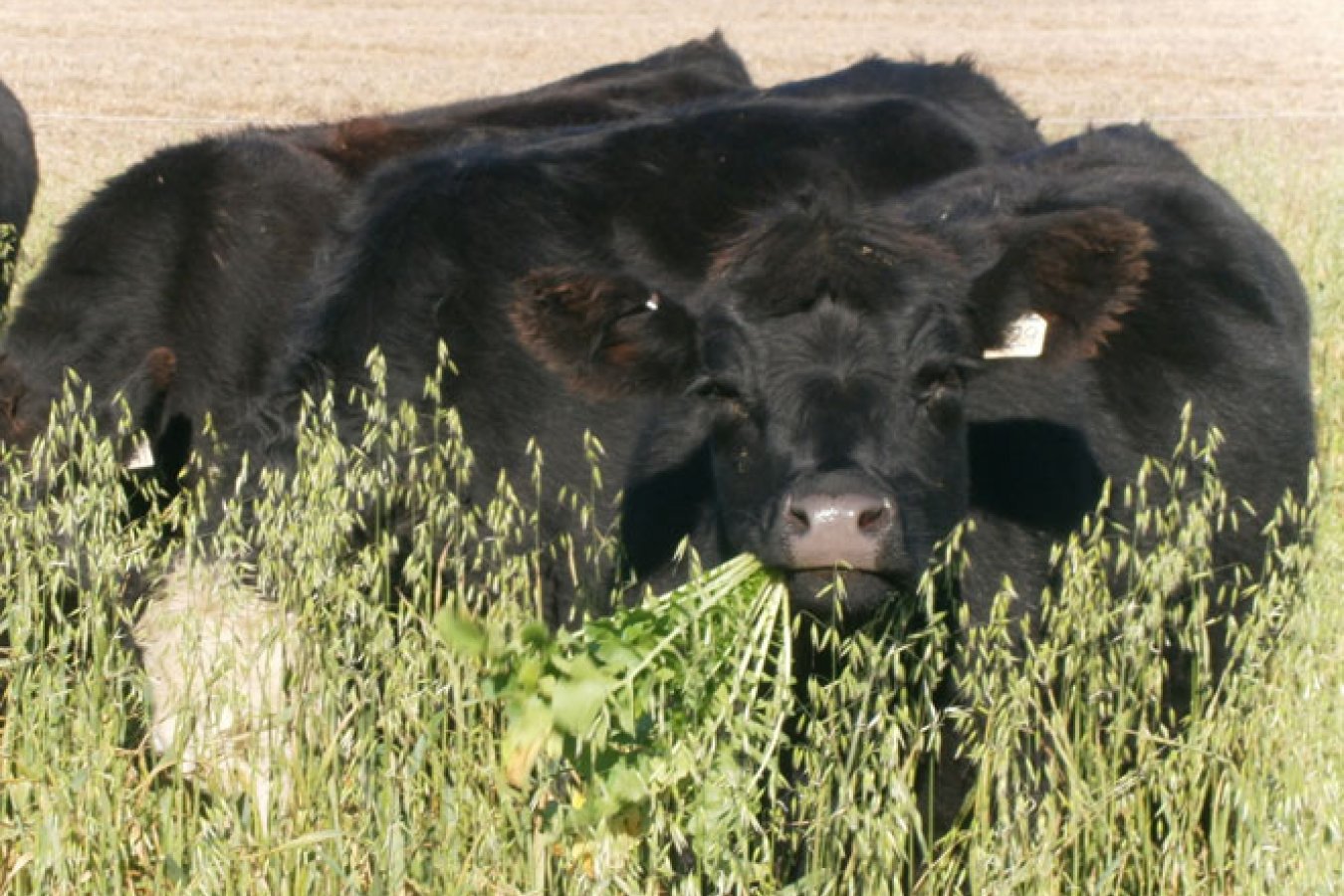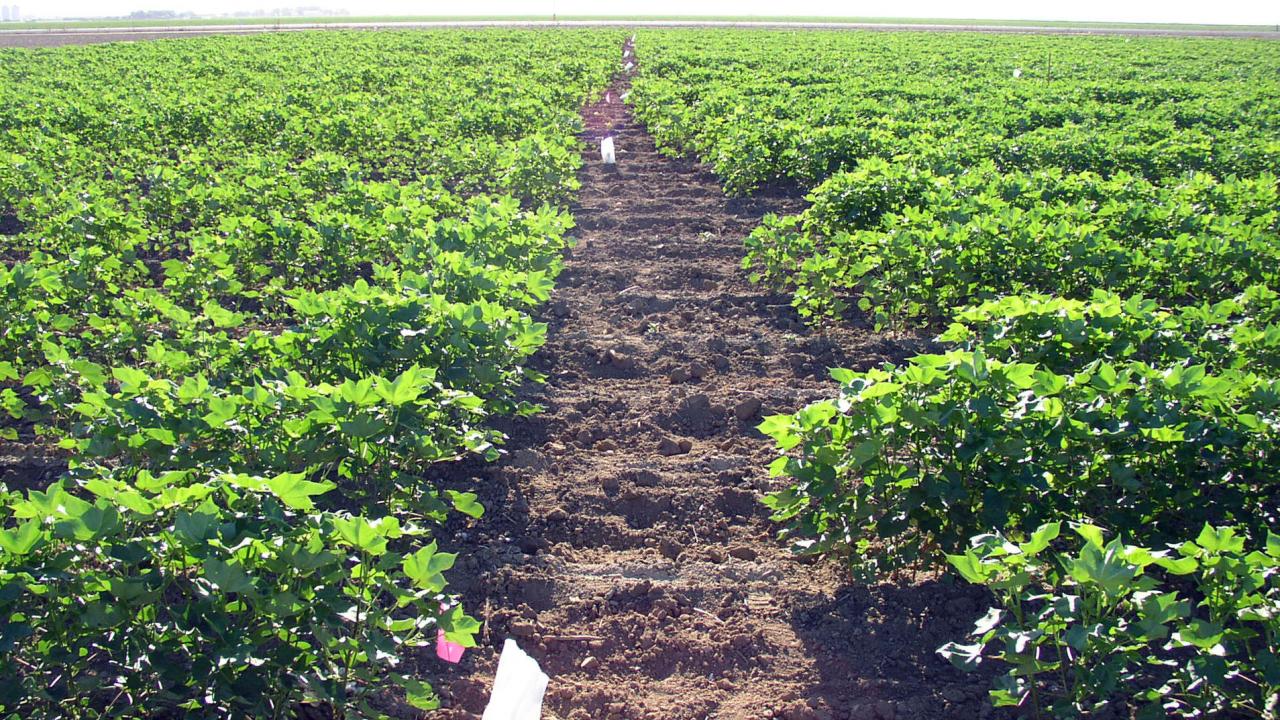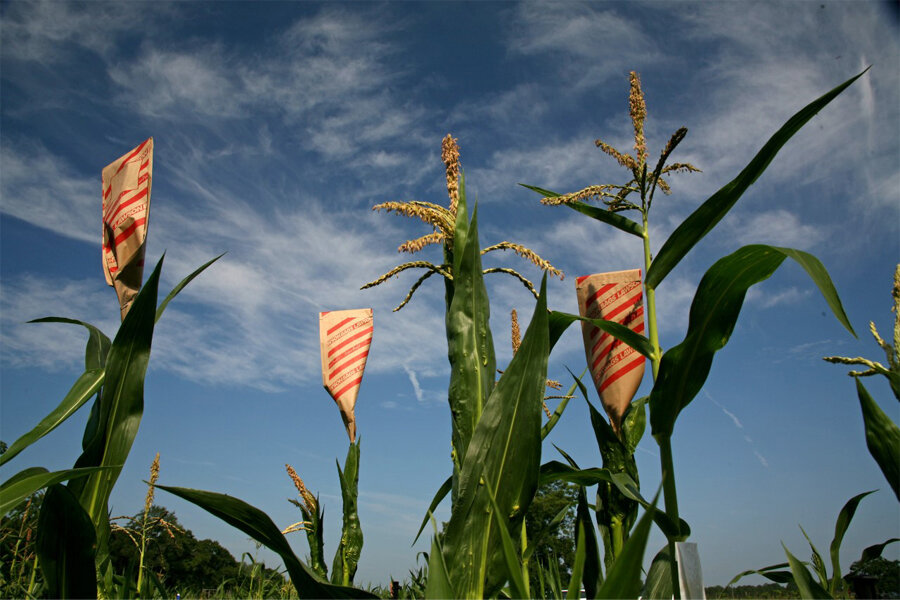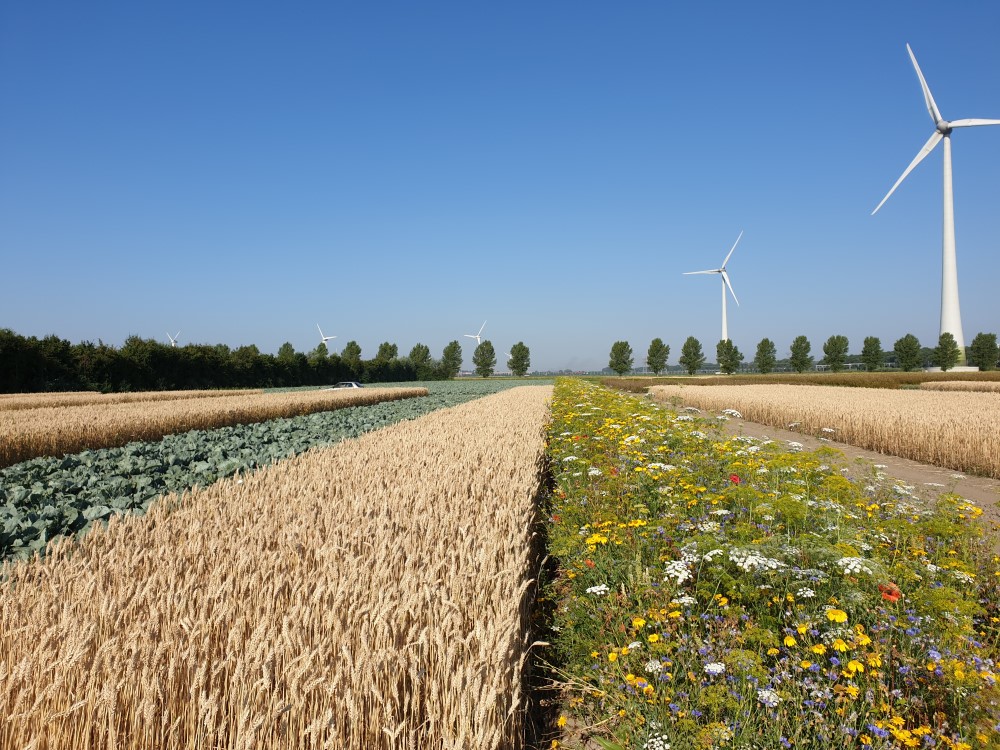 John LaRose Jr.
John LaRose Jr.
Topics: Herbicides, Weeds, Crop Consultant, Education U.S. NorthEast, Sustainability, Regenerative Agriculture,
No-till production farmers can cut herbicide use, control weeds, protect profits | Penn State University
Farmers using no-till production — in which soil never or rarely is plowed or disturbed — can reduce herbicide use and still maintain crop yields by implementing integrated weed-management methods, according to a new study conducted by Penn State researchers.
-
(0)
-
Bookmark
- Comments (0)
 John LaRose Jr.
John LaRose Jr.
Topics: Agriculture US, Crop Consultant, Agriculture Global, Economics, Sustainability, Research, Weather,
Study proposes new ways to estimate climate change impacts on agriculture
Most scientists agree climate change has a profound impact on U.S. agricultural production. But estimates vary widely, making it hard to develop mitigation strategies. Two agricultural economists at the ...
-
(0)
-
Bookmark
- Comments (0)
 John LaRose Jr.
John LaRose Jr.
Topics: Soil Health, Precision AG , Agriculture US, Cover Crops, Crop Consultant, Agriculture Global, Water, Sustainability, Education,
South Dakota producers reap rewards of cover crops
The longer farmers use cover crops, the more likely they are to see the benefits and to use the conservation practice on a higher percentage of their farmland, according to a survey of eastern South Dakota producers. Cover crops, which are planted after harvesting the cash crop, help prevent erosion and runoff and increase soil organic matter, thereby reducing the need for fertilizer and improving water quality. In addition, cover crops can help suppress weeds, thereby reducing herbicide and pesticide usage, according to assistant professor Tong Wang of South Dakota State University’s Ness School of Management and Economics. She is part of a team of SDSU researchers who conducted the spring 2018 survey to evaluate producers’ perceptions about the benefits of conservation practices aimed at improving soil health, reducing the industry’s carbon footprint and increasing the sustainability of agriculture. Furthermore, Wang reported those who use cover crops for grazing are more likely to view them as increasing their profitability, even during the first few years. “Grazing helps offset the cost of using cover crops by reducing forage costs.” More than 70% of South Dakota producers graze their livestock on crop residue and cover crops, according to a 2016 survey in the Northern Great Plains. An article on South Dakota farmers’ perceptions about profitability and their likelihood of continuing to use cover crops was published in the Journal of Agricultural and Resource Economics. The research was funded by the South Dakota Corn Utilization Council and the U.S. Department of Agriculture Natural Resources Conservation Service. Tracking cover crop usage In the contiguous United States, the number of acres on which farmers plant cover crops increased from 218,000 in 2012 to 619,000 in 2017, according to the fifth-annual Sustainable Agriculture Research and Education–Conservation Technology Information Center cover-crop survey. Of the 708 South Dakota producers who responded to the SDSU researchers’ su...
-
(1)
-
Bookmark
- Comments (0)
 John LaRose Jr.
John LaRose Jr.
Topics: Soil Health, Crop Consultant, Agriculture Global, Economics, Sustainability, Fungicides, Research,
Keeping clubroot in rapeseed in check by using fungi
Teams from the Chair of Plant Physiology at Technische Universität Dresden and the Julius Kühn Institute in Braunschweig have been researching biological methods to better control the widespread plant ...
-
(0)
-
Bookmark
- Comments (0)
 John LaRose Jr.
John LaRose Jr.
Topics: Precision AG , Cotton, Crop Consultant, Education U.S. West, Economics, Crop Diseases, Fungicides, Research,
New Pima Cotton Cultivars Show Improved Resistance to Disease
Researchers at UC Davis have helped develop three new Pima cotton cultivars that are resistant to Fusarium wilt disease, a soil-borne fungus that can devastate a cotton crop.
-
(0)
-
Bookmark
- Comments (0)
 John LaRose Jr.
John LaRose Jr.
Topics: Crop Consultant, Agriculture Global, Water, Sustainability, Research, Climate Change,
Humble pond plant duckweed may help researchers to develop better crops
Duckweed, a tiny freshwater floating plant, is an excellent laboratory model for scientists to discover new strategies for growing hardier and more sustainable crops in an age of climate change and global population boom, a Rutgers-led study finds.
-
(0)
-
Bookmark
- Comments (0)
 John LaRose Jr.
John LaRose Jr.
Topics: Agriculture US, Crop Consultant, Agriculture Global, Beekeeping, Regenerative Agriculture, Pollinators,
America's First "Bee Dog" Helps At-Risk Bumblebee Population
Darwin the Bee Dog can sniff out bumblebee nests, helping his mom gather research to save the declining bee population.
-
(0)
-
Bookmark
- Comments (0)
 John LaRose Jr.
John LaRose Jr.
Topics: Corn/Maize, Agriculture US, Crop Consultant, Agriculture Global, Education U.S. SouthEast, Sustainability, Research,
A technique to map out 'light switches' of maize genome - My Droll
Pollination bags cover corn tassels at a Florida State University research field for an experiment led by biology Professor Hank Bass. The bags prevent plants from being pollinated, which allows scientists to avoid contamination of the specimens they are researching. Credit: Jonathan Doster Getting a full understanding of how genes are regulated is a major […]
-
(0)
-
Bookmark
- Comments (0)
 John LaRose Jr.
John LaRose Jr.
Topics: Cover Crops, Crop Consultant, Agriculture Global, Sustainability, Regenerative Agriculture, Renewable Energy (Solar/Wind),
Biodiversity in Food Systems
As we grapple with the challenges of feeding the growing world population without destroying our planet, agendas are increasingly turning to the role of biodiversity in food systems. Biodiversity at all levels – genetic, species and ecosystems – is the basis of our food system, yet our comprehension of its role is often overlooked or undervalued. WUR delivers world-leading research in both food and biodiversity. Its food systems approach acknowledges the many interlinkages between people, agriculture, biodiversity, water, health and climate change. WUR’s ambition is to leverage the role of biodiversity in this food systems thinking, and thus provide thought leadership that contributes to transforming our food systems and bending the curve of biodiversity loss.
-
(0)
-
Bookmark
- Comments (0)
 John LaRose Jr.
John LaRose Jr.
Topics: Precision AG , Agriculture US, Crop Consultant, Sustainability, Ag Europe, Government / Policies,
Commentary: Bill Wirtz - US should not look to Europe for future of agriculture
Throughout the country, there is a rising movement that hopes to make regulations on...
-
(0)
-
Bookmark
- Comments (0)












